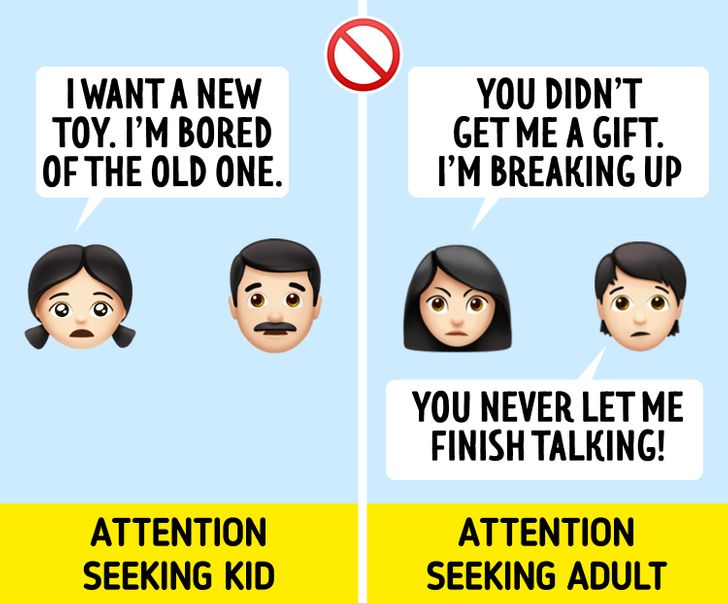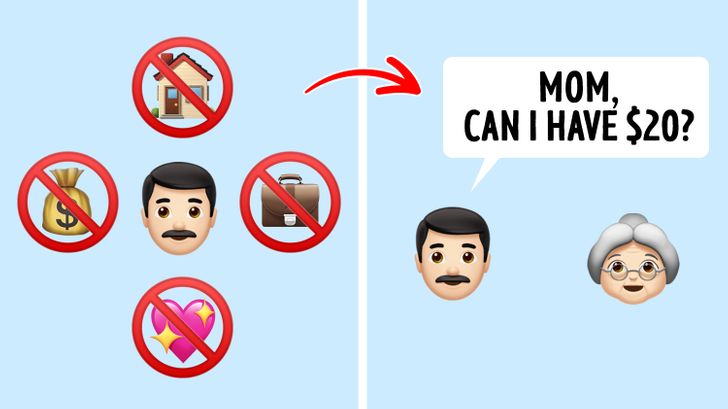How to Be Emotionally Mature

Emotionally mature people are the ones who stay calm amidst the chaos. It doesn’t matter if they don’t have all the answers, they can easily manage their emotions given the circumstances. They are well aware of how to respond to unfavorable situations and keep their cool. This skill doesn’t develop overnight but takes a lot of work and consistency over time. If you’re looking forward to building some emotional maturity, let 5-Minute Crafts be your guide.
Signs of emotional immaturity:
The difference between emotionally mature and immature people is that emotionally immature people don’t meet the societal expectations for the behavior that is in their age range. Emotionally mature people know how to accept criticism and can effortlessly plan their future as well. But emotionally immature people tend to struggle with this. Here are a few more behavioral characteristics of emotionally immature people:
1. They behave impulsively.
Emotionally immature people act unpredictably or in antisocial ways. Imagine that children are usually impulsive, they tend to touch things they aren’t supposed to or say things without thinking about how it will impact others around them. When children aren’t taught to control these impulses at an early age, this behavior is clearly visible when they grow up as adults too.
2. They name-call and bully others.
If someone was mean in their childhood, it only means that they weren’t being emotionally mature. And when they grow up without any attention to self-awareness, they tend to depend on childlike displays of anger.
3. They find ways of gaining attention.
When kids get bored, they do activities to attract the focus back onto themselves, even if it means behaving in negative ways. The same is applicable to emotionally immature adults as well. Their means may not be negative, but they may interrupt conversations or crack inappropriate jokes to gain attention.
4. They don’t take on important responsibilities.
As mentioned above, emotionally immature people may have no clue how to plan their future at all. This is reflected in the other aspects of their lives as well as they fail to undertake major responsibilities like committed relationships, a professional life, homeownership, or even investments. These people depend on others to look after them and this behavior is usually called Peter Pan syndrome after the fictional character who refused to grow up.
Tips on developing emotional maturity:
1. Work on self-improvement.
Mature people love self-development and understanding how their and others’ minds work as well. They are open to learning and applying whatever they gained from their experiences in all aspects of their lives. This keeps them more conscious, as they’re paying heed to their life principles.
2. Develop empathy for others.

Emotionally mature people thrive in life by doing as much good as they can and lifting up others around them as well. They also know how to be in someone’s shoes and help them out by any means possible.
3. Be fearless about vulnerability.
Emotionally mature people are unafraid to open up and they freely share their own struggles, so as to make the other person feel less alone. They don’t care about being perceived as perfect. They are also very honest with their feelings and with building trust among others because they have no agenda in place.
4. Set healthy boundaries.
It is an important form of self-love and respect. Emotionally mature people know when and how to draw a line and not let others cross it. If someone belittles them, they don’t stand for it and they make sure that their voice is heard.
5. Take accountability.
Emotionally mature people are always aware of their worth and are open to changing their behavior, meaning they don’t point fingers at others or even at themselves if anything goes wrong. They’re humble by nature. Rather than whining, they always take action to improve the situation at hand.







